On this Orientation Issue episode of “Bruins Built This,” Kevin Felix Chan explains to Podcasts Editor Jack Garland how his expereinces at UCLA led him to found his company, Best Delegate.
Jack Garland: Welcome to Bruins Built This, I’m Jack Garland. Today’s episode is part of the Daily Bruin’s Orientation Issue, which aims to introduce new students to campus life at UCLA. Our guest will share some advice he has for incoming and current students about how to get the most out of our UCLA education. So without further ado, let me introduce Kevin Felix Chan, the founder of Best Delegate. Kevin, welcome to the show.
Kevin Felix Chan: Thank you, thank you for having me.
JG: In high school, I used your company, Best Delegate, religiously as a member of my school’s Model UN team. And so I’m very well acquainted with your company. But can you give our listeners a rundown on your business and how you started it?
KFC: Yeah, thanks for using Best Delegate. You know, I didn’t have a Model UN resource, or this website. When I was doing Model United Nations, everything was just trial and error. And I started off as someone who was super shy and nervous when I did public speaking. Eventually it got better. I wrote about Model UN in my college essays, got into UCLA, and did Model UN at UCLA, and eventually served as a leader of the Model UN club at UCLA, and also got to host a conference at the United Nations Headquarters in New York and introduced then Secretary General Ban Ki-moon.
JG: Could you explain what Model UN is for those who aren’t familiar?
KFC: Yeah, so Model United Nations is a simulation of the United Nations, and basically any other international relations or current events that take place. And so the most classic form of Model UN is you’re role-playing as a certain country. Let’s imagine you have to represent Brazil, and everyone else is role-playing different countries. And you’re all getting together to solve real world global issues. And you have to solve it from the perspective of your country. So if you’re representing Brazil, you have to represent that perspective. But someone else in the room is representing China, someone else is representing Canada, someone else is representing Russia or South Africa. And you have to get together to solve global issues in that way. So it really helps students understand not just how to solve issues diplomatically, but also gain skills in public speaking and leadership, negotiation, teamwork, and so forth. And to me, Model UN is the best way to prepare ourselves to become global citizens and leaders in our global society. So I went from being a super shy kid to getting to speak at the actual United Nations. And that’s why I believe in the power of Model UN to really change students’ lives and help them become confident global leaders. And I had all that experience, but actually, after college, I decided to work in corporate, and I was just sitting in my cubicle after year three, and I thought to myself, I have all this knowledge, and that’s just going to waste, I’m not trying to compete for awards anymore in Model UN, maybe I should do something about it and give back and just share this passion and everything I knew about it. And so a friend of mine, who I met at a Model UN conference, the two of us started blogging on this website called bestdelegate.com. And we just decided to share everything we knew about Model UN. Eventually, the blog started getting more popular. People suggested maybe we should do some coaching or workshops, or write a book or something. And the two of us were working corporate jobs, so we decided to take a vacation. We were walking along the beach in Costa Rica, and we thought to ourselves, what if we just quit our jobs and just taught Model UN full time as our job. And that’s what we did. So we quit our jobs and decided to teach Model UN full time and turn bestdelegate.com to not only a blog, but also something that could be an organization and a business as well. And so nowadays, we do Model UN summer camps, we do Model UN workshops and trainings, I’ve had a chance to teach Model UN in over 20 different countries. And we work with the United Nations, entire governments, school districts, charter school networks, and all sorts of organizations in between to roll out Model UN at a scalable level. So that’s what I do.
JG: Hearing your story about how you started Best Delegate, it seemed like you had this sudden realization while working in corporate that you wanted to start your own business. Had you ever expected yourself to become an entrepreneur before that?
KFC: Yeah, I did not because I don’t come from an entrepreneurial family. And I studied political science. That’s what I majored in at UCLA, so I thought I was going to go to law school. And I think in retrospect, I actually kind of majored in Model UN. And what I mean by that is Model UN provided me with so many entrepreneurial opportunities. For example, we had to run the high school conference that is basically running a big nonprofit. We had to start a college conference from scratch at the time. And that was basically like starting a startup or a new business. And I was the head delegate, which is the leader of the travel team for two years, that is basically learning how to run and grow a team. So all those experiences contributed as the foundations of my entrepreneurial journey, but I didn’t know it at the time. At the time, I was studying political science, I thought about going to law school. It helped that a lot of my friends were econ majors. It helped that I studied abroad through the EAP program at UCLA in China, and I saw how there’s a lot of dynamism in business and global business. So that piqued my interest a little bit, but ultimately how I shifted my direction was that I was able to manage a team of 100 staff members at our Model UN conferences. And when I went to the career fairs at UCLA, I remember just standing in line, and there’s a big long line for Deloitte Consulting, because it’s a big name. So, you know, I was like, “Okay, I’m not going to go into this line, let me just talk to another company next to it.” And it happened to be AT&T’s booth right next to Deloitte. So I went up to them, and just started talking to them. And they recognized that I had a lot of management experience and leadership experience through managing these teams. And so I got hired at AT&T. And my first job out of UCLA, I already had six direct reports, and I was their boss. And I walk into the job. They’re like, “How old are you?” You know, I just graduated, and I was like, “Oh, you know, I’m in my 20s.” They’re like, “Oh, my son is 21,” and “Oh, my daughter’s 20.” And I realized I was managing people my parents’ age in my first job out of college because of all the skills I learned through Model United Nations, and other activities, too. But definitely Model UN was the main contributor. So that shifted me into management. It shifted me into business. I did three years of business management at AT&T. And then that eventually led me into the entrepreneurship path.
JG: While you were making the shift to entrepreneurship, did you have any role models that helped guide you?
KFC: I think, yes. So fundamentally, I think a lot of it was having great support networks. At UCLA, I took advantage of the mentorship program that was offered through the UCLA Alumni Association. I was involved in extracurricular activities, including a program called Sea Clear mentorship, which was on campus. So having mentors helped because they expanded my worldview beyond what I just knew. So that was important. I think at a macro level at the time, there were certain authors that I came across somehow, that were more about how do you design the lifestyle that you want to live? How do you design the life and the career that you want to have. Some of those at the time were Tim Ferriss, The 4-Hour Workweek, Ramit Sethi, from I’ll Teach You to be Rich, Chris Guillebeau from The Art of Non-Conformity. I remember reading those books between my junior and senior years of college, that summer. And those were pretty formative in helping me understand I didn’t have to go through the default path that I thought I was going to go through, which was like law school, or a nine to five job or consulting, which is what everyone wanted to do. And I could create my own career and pursue the things I’m passionate about.
JG: You’ve already mentioned the mentorship program and the jobs fairs at UCLA. How else did your experiences at UCLA help you while you were starting your business?
KFC: Yeah, so I think UCLA has so many extracurricular activities. And to me, that is where a lot of the real value of education is gained because extracurricular activities is where you build your network. It is where you build your practical, hands-on experience in leadership and management and other skills. It is the stories that you can tell when you go out and interview, there from all of these activities. And I point this out specifically because I thought that was just how college operated. And when my friends who would visit from other colleges come to campus, they would recognize that, wow, UCLA has so many activities. I remember my co-founder, Ryan, who went to Yale University, he would come visit me during spring break, and he would realize that “wow, there’s just so many activities going on. At Yale, we don’t have enough students to do some of these clubs.” So that was pretty eye-opening to recognize how valuable UCLA was, in terms of that experience of extracurriculars. I think other things that were pretty formative were the EAP program, which is study abroad. Also, all the different career fairs. I think there were just so many career fairs on campus that talked about different internship opportunities. I also did work study, and I happen to choose my work study at the UCLA Anderson School of Management. And so one of my work study roles was to actually manage the career fairs for the business school students. I was just like an event organizer in the background. I got to sit-in in all the different presentations by all the different recruiters that were coming to recruit the business school students. And so that was really helpful to see what else is out there beyond what I knew. So I think all of those piqued my interest into different careers. But I recognize the thing at UCLA is that no one is going to tell you that these things are available. I remember a lot of my friends who were econ majors didn’t even know that there were career fairs available. So I think it’s one of those things at UCLA where you have to go out and seek it. But if you do it, that actually builds up your entrepreneurial capacity because you’re figuring things out on your own exploring versus waiting for things to come to you.
JG: Is there anything that you wish you knew when you were starting that might be helpful for new and aspiring entrepreneurs?
KFC: Yeah, I think there’s a perception that entrepreneurship has to be done in a certain way, which is what we see in public about venture capital and angel investing and pitching and Shark Tank style. Entrepreneurship doesn’t have to be that. It depends what you’re trying to build. And there are different models that are out there. And college doesn’t really teach a lot of these models. So the one that I follow is from the book Traction called the Entrepreneurial Operating System, the book is Traction by Gino Wickman. And basically, the Entrepreneurial Operating System is a framework on how to run a business, and anyone can read the book and do it. So I think I wished I was exposed to some of those models earlier on, and maybe taking some courses on different skills. But ultimately, I loved my UCLA journey. So you know, I don’t think I can change anything. I don’t think I need to change anything. But I think that that would have been helpful to get some sort of exposure to entrepreneurship. And in ways that makes sense, particularly those who are not business majors or not entrepreneurship majors.
JG: Could you walk us through that framework?
KFC: So the Traction framework has six different components, but I’ll just focus on some of the major ones. One component is called the Vision Component. A lot of entrepreneurs have the ideas in their heads, but how do you write it all down into a neatly organized document that explains what is the mission, what is the long term mission of your company? What are the core values? What does the 10 year target or goal look like? And what does the three year picture of this organization look like? If we have all that written down, it becomes way easier to decide and focus on where we are headed and what activities we want to be focusing on on a day-to-day basis. So that’s the Vision Component. And then the traction component is really putting it down into an actual plan. So these are the specific goals we’re trying to hit. These are what they call rocks or other organizations call it priorities or OKR, objectives, key results. But these are the top priorities that the company has to focus on in order to achieve its goals. What are those, and then lastly, the accountability chart, who is responsible for it? So it breaks down business into much more manageable parts and to something that’s plannable? And rather than this thing that just seems like it’s a black hole, where you just jump in and figure things out. Now I have done it and also have led accelerator programs and helped others grow their businesses. Entrepreneurship is actually somewhat repeatable, somewhat scalable, somewhat predictable if you implement certain tools in your business.
JG: Any final bits of advice that you’d like to share with our listeners?
KFC: Yeah, I think two things. One is learn to feel in flow. What I mean by that is, we tend to pack a lot of things into our schedule, especially as good students, that we all were to get into UCLA. We have to pack so many things in our schedule and do so many things. But going with flow means going in the direction that you feel interested in, that you feel passionate about, that you feel like this is the right direction I want to head. So it’s about listening to yourself and really knowing yourself. And that requires time away from all the day-to-day to do the reflection, or meditation, and to really get to know yourself. So that is one piece of advice. The second one would be to focus on lifelong relationships. So who are the people that will help you and be part of your journey for your entire life, regardless of what you’re doing? And, you know, I was involved in a lot of things, and I had good friendships at UCLA. I remember my senior year I was really hoping to connect with certain people because I realized, once you leave campus, it is really hard to stay in touch. So how do you build these lifelong relationships so that you can stay connected for your whole life. And I’ve been to so many of my UCLA friends’ weddings, and I still stay in touch with them. I just caught up with a model UN friend, who now lives in Switzerland. I visited another Model UN friend a few years ago, who lives in Singapore. We have these lifelong relationships, these foundations built at UCLA, these friendships. And that’s why we still stay in touch and are able to be part of each other’s journeys. So I think the value, again, is not in just the schooling part of college, but also in the activities and the people that you meet along the way.
JG: Before we wrap up, Kevin, what does the future look like for Best Delegate?
KFC: Yeah, so our mission right now is to do Model UN for all. How do we make Model UN more accessible for everyone? And for the first decade of our existence, we were trying to replicate the extracurricular version of Model UN that we all knew, but that version is not necessarily accessible or sustained, or financially sustainable. And so what I recognize is, in order for Model UN to be accessible for everyone, because it’s impossible for everyone to go to Model UN, what’s more sustainable and feasible is how do you bring Model UN to everyone else? And what that means in practice is how do we redesign Model UN so that it can be just a default part of the school curriculum, for example, in social studies, or as an elective, and that schools and entire governments and ministries of education or departments of education can adopt it as part of their curriculum. So I think the future is about designing that for different institutions, different governments, and bringing that to as many people as we can so that everyone can get the Model UN experience that’s accessible just within their school. So that is the future. That’s what we’re working toward. And of course, you know, Model UN will continue to thrive as an extracurricular activity. There will still continue to be summer camps, virtual programs, and so forth. And to me, what I would love to see is that when we look at the future leaders of the world, but also our local communities, all the alumni who are leading in our communities are all alumni of Model UN in some way. I would love to walk into a future UN conference and I know the majority of the room because they all did Model UN at some point. Or, I would love to see on the local news that we have all these people, who are leading in government and business and academia and health and everything else in their community, and a lot of them gained their skills through Model UN. That would be the larger vision: we have empowered millions of global leaders in this world.
JG: Well, Kevin, as a former Model UNer, thank you for creating Best Delegate, and thank you for coming on the show today.
KFC: Awesome. Thanks for doing Model UN, thanks for inviting me. This was really great to reconnect, I love UCLA’s support of entrepreneurs, including the Business 100 program. So thanks.
JG: Well, I’m sure our listeners are very grateful for all of your advice about UCLA and entrepreneurship. And thanks again for coming on the show, Kevin. Take care.
KFC: Thank you.
JG: Bruins Built This is brought to you by The Daily Bruin, UCLA’s student newspaper. You can listen to this show and others by The Daily Bruin on Spotify, Apple Podcasts, and SoundCloud and the audio and transcript of this show is available at dailybruin.com. Thank you for joining us for this special Orientation Issue episode. I’m Jack Garland, and I’ll see you next time.
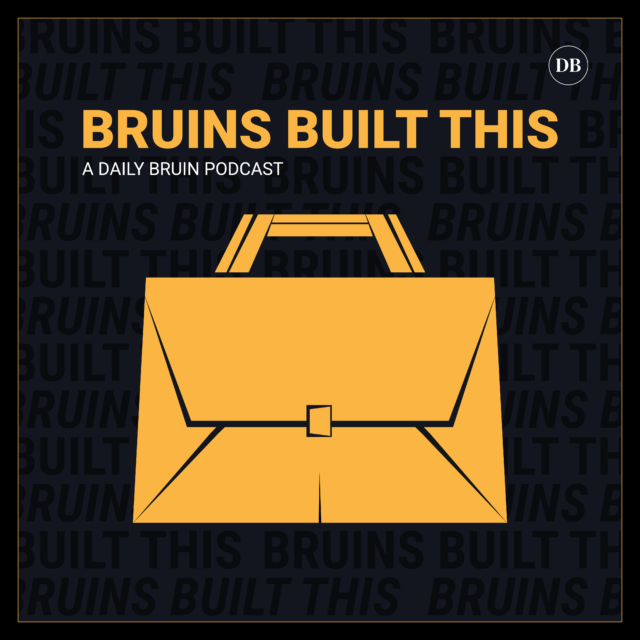

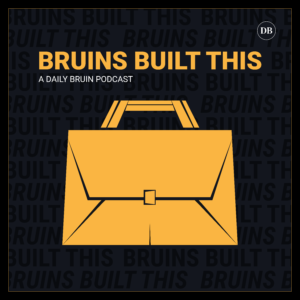
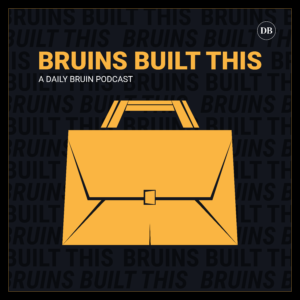
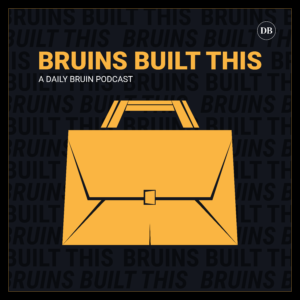
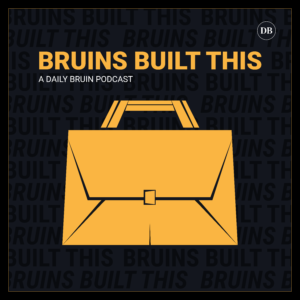
Comments are closed.